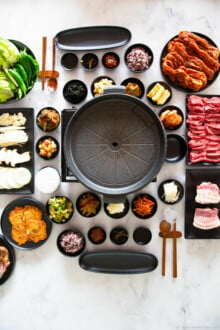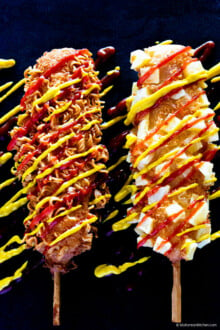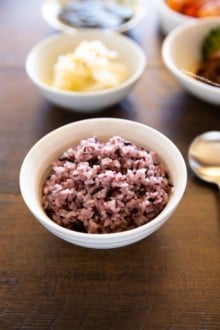Rice wine or refined rice wine is an essential pantry item in Korean cooking.
Below is my new cooking wine. I bought it for about AUD $3.00 for 500ml (Mirim 미림 by Lotte) at a Korean grocery store.
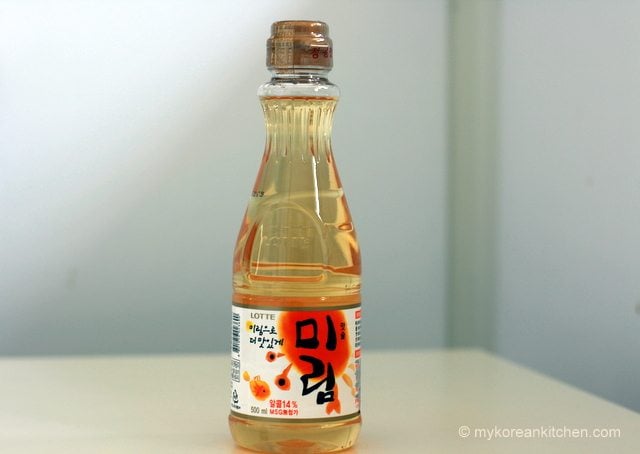
- Highlights: Alchohol 14% and No MSG
- Ingredients: Water, Corn syrup, Sugar, Rice, Aging alcohol 14%/volume
Previously when I was in Korea:-
I used to use ‘refined rice wine’ to get rid of the meat smell. However, it also contains natural succinic acid which apparently gives a refreshing taste as well.
Here is the picture of the refined rice wine that I used.
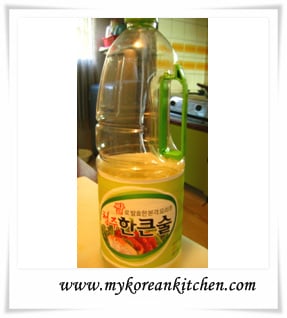
It is 1.8 L. (about 6500 won, US $ 6.80)
I only use it for cooking purposes, so it lasts a long time. Its Korean name is “Cheong-Ju (청주)“.
-Quick Korean lesson-
“Ju” (酒 in Chinese Chracter) means alcohol in Korean.
e.g. So-Ju, Maek-Ju (Beer), Poktan-Ju (boilermaker or mixed drinks in English)
Find more about Korean kitchen essentials.
